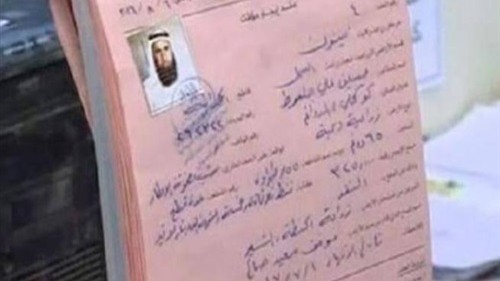By: Mostafa Amin
An Iraqi Military Intelligence unit in Nineveh hauled a treasure trove of important documents and digital information related to ISIS activities, to their terrorist groupings, with names and addresses of their militants and of dealers in lands of Iraqi Christians, Turkmen, Shabaks and Shiites forced to flee their villages in Nineveh plains.
According to a statement issued by the Iraqi Ministry of Defense, the documents show how ISIS, by confiscating land, made millions of dollars and used this money to buy weapons and explosives for their terrorist operations targeting civilians and security forces. The statement also said that the documents seized by the Military intelligence operatives will be used, in a court of justice, as a proof of guilt against groups of collaborators that may be arrested for supporting terrorist actions perpetrated by ISIS.
A Washington Post report said that the collection of documents seized by Iraqi forces showed that some ISIS elements rebelled against the organization’s leadership. The documents detailed problems faced by 14 foreign fighters in the Tariq ibn Ziad battalion.Some of those fighters repeatedly refused to take part in military operations. According to the documents, one of them, a fighter from Belgium, said his back pain prevented him from joining terrorist operations. A Frenchman said he’d rather go to France and be involved in terrorist operations there.
The so-called Islamic Caliphate in Iraq and Syria that was once the size of Great Britain, controlling vast territories in two Arab countries, is now physically collapsing and the extremist group is barely holding onto a desert enclave out in the Anbar province and a few towns and villages in Syria . But the question is: Is the fight over? Many informed sources say it’s not.
With the example of al-Qaeda, the forerunner of ISIS, that survived its defeat in Iraq by a U.S.-led campaign, a decade ago, by retreating to desert areas in Iraq and waiting for better times, some of the analysts suggest that the leaders of ISIS, with the military skill that they possessed, must have expected that they would be crushed by the ground assault backed by the massive fire power of the U.S.-led coalition of air forces in the two neighboring countries and the Russian air force in Syria. These analysts think ISIS leaders might have considered returning to war in different parts of Iraq and Syria. Others say they may have already moved to Yemen and Libya.
But, this does not mean that ISIS, even when its supporters prove that they are able to carry out terrorist acts, not only in countries of the Middle East but also in Western capitals, will, once again, be a power to reckon with, in the way it was in Iraq and Syria. As Steven Walt of Foreign Affairs magazine once said, when he compared ISIS fighters to other “revolutionaries”, the danger posed by ISIS will be limited, for the simple reason that “although it has attracted some sympathizers abroad, just as earlier revolutions did, its ideology is too parochial and its power too limited to spark similar takeovers outside Iraq and Syria”.








































admin in: How the Muslim Brotherhood betrayed Saudi Arabia?
Great article with insight ...
https://www.viagrapascherfr.com/achat-sildenafil-pfizer-tarif/ in: Cross-region cooperation between anti-terrorism agencies needed
Hello there, just became aware of your blog through Google, and found ...